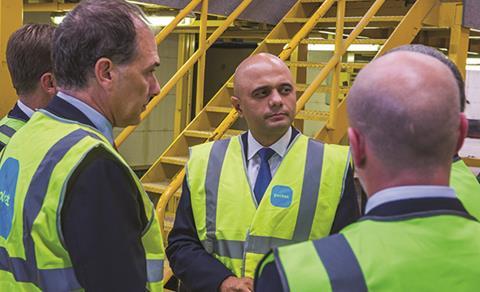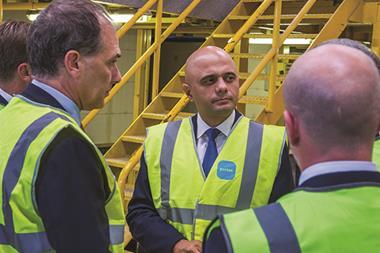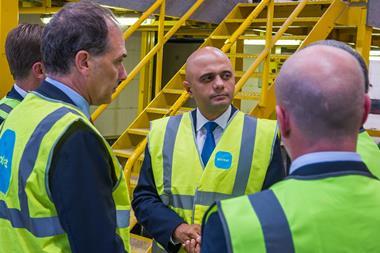The government will use a new £2bn housebuilding fund to step in and buy homes that developers cannot sell in a drive to speed up housing delivery and reduce construction risk, Property Week can reveal.

The accelerated construction fund, announced at this week’s Conservative Party conference, will be used to guarantee housing developments, with the government effectively using its balance sheet to underwrite the risk developers take.
This would allow sites to be built out more quickly, Sir Edward Lister told Property Week.
“The way I see that going is guarantee money rather than anything else,” said the chairman of the Homes and Communities Agency (HCA), which will oversee the fund.
“So it’s about us going to a housebuilder and instead of expecting the normal build-out rate of 50 units a year, we’ll say ‘we want you to build all 500 in one go and what we’ll do is guarantee to take them off you if you can’t find a buyer’.”
The details of the fund were “pretty much finalised”, he added.
The move is aimed at addressing developer concerns that they cannot build homes faster than they can sell them. Under the new scheme, if the government is required to buy homes, the HCA will directly sell them either on the open market, to private rented sector investors or registered social landlords.
This week communities secretary Sajid Javid said the £2bn fund, which will be paid for through additional government borrowing, would only apply to schemes on public land and would back the construction of an extra 15,000 homes by 2020.
“We will take government-owned land and partner with contractors and investors to speed up housebuilding,” he said. “We will create new supply chains using offsite construction. And we will encourage new models of building to make houses that people want, more cheaply and at pace.”

Lister revealed that the government would probably impose quotas on schemes backed by the fund to guarantee that a proportion was built off-site.
“On these big sites, we will probably specify that a certain amount of it has got to be modern methods of construction, because we’ve got to drive [that].”
The price at which homes were guaranteed would be set as part of the bidding process, Lister added, and the level would be something the government took into account in choosing schemes to back.
“When you bid for this, we’ll be looking at what your guaranteed price is and that will be part of our consideration,” he said.

Lister stressed that the fund would only back projects that could be built out quickly and that the HCA would consider allowing developers to defer payments for the land in order to speed up the process.
“We’re really only interested in speed. It’s about how fast we can get the delivery through.”
Although the HCA was “extremely keen” to promote smaller builders, larger developers would not be shut out, he added.
Who’s going to sell?
Jon Di Stefano, Telford Homes chief executive, said the scheme was a “good idea” in principle, but raised questions about how the government would sell units that builders had been unable to dispose of.
“You’ve still got to find the end user at the end of the day. If we can’t sell them, why can’t we sell them? And therefore, how is the government going to sell them? And if the government is going to rent them out, we should be capable of getting there ourselves,” he said.
“If it’s on publicly owned land it can’t be a bad thing, but there are things to consider.”
Di Stefano also warned that labour shortages could hold back the pace of development - an issue that could be exacerbated by the Brexit vote. “It’s about whether there will be enough construction resource,” he said.
Modular construction factories
This week, Javid sought to reassure the housebuilding industry that the UK’s vote to leave the EU would not stop EU construction workers, which the industry relies upon, from working in the UK.
Lister also confirmed that the government would consider using some of the separate £3bn Home Building Fund, also launched this week, to invest in modular construction factories, as tipped by Property Week.
“The plan is that it should have as little restriction on it as possible. It can be used to acquire land in partnership, it can be used to create joint ventures, it can be used as loan finance, it could even be used to invest in modern methods of construction factories if that’s what is wanted.”






























5 Readers' comments